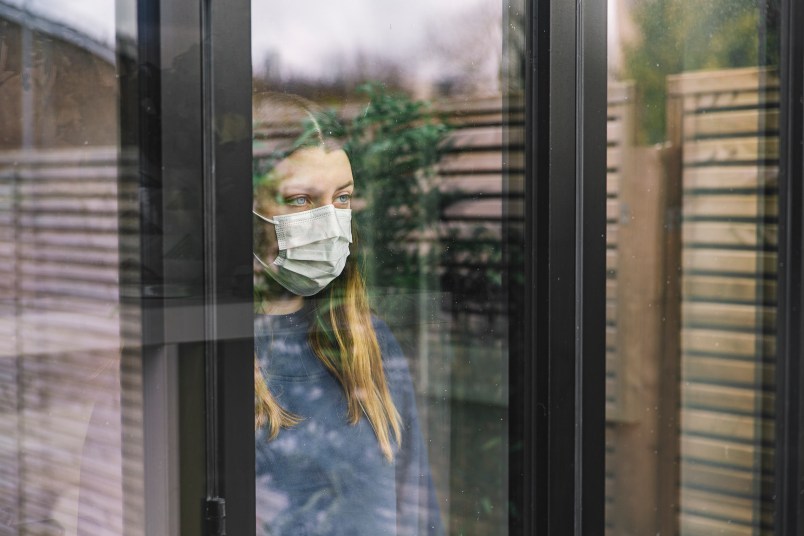We can blame COVID for that.
A Gallup survey published Monday shows that Americans’ assessment of their mental health has plummeted to its lowest point in the last two decades.
According to Gallup, a Nov. 5-19 showed that 76% of adults rate their mental health positively, a nine-point decline from last year.
Since 2001, Gallup reported that Americans responded to its annual November Health and Healthcare survey by rating their mental health as excellent or good within the range of 81% to 89% — until this year’s 76%.
Gallup reported that this year’s excellent ratings are 8 points lower than any prior year. A majority of adults rate their mental health as excellent (34%) or good (42%), and far fewer say it is only fair (18%) or poor (5%).
Gallup noted that the weakening of positive ratings are “undoubtedly influenced” by the COVID-19 pandemic that has significantly upended people’s lives. The political climate of the country, given the presidential election cycle and protests against police brutality throughout the year, could have also influenced Americans’ decline in positive mental health ratings.
In April, Gallup’s ongoing COVID-19 tracking survey found that Americans were willing to comply with social distancing guidelines as long as necessary before their physical health and financial situation suffered. However, less than half said the same of their mental health.
Mental and emotional wellbeing varies across demographic subgroups. The groups whose ratings of their mental health as excellent fell by double digits since 2019 include: women, Republicans, independents, those who attend religious services less than weekly, White adults, those who are unmarried, older adults, and lower-income Americans. According to Gallup, Democrats and frequent church attendees show the least change in their mental health ratings.
Gallup notes that subgroups who indicated the greatest declines in excellent mental health aren’t necessarily linked to those who ranked the lowest positive ratings, citing how more Republicans and independents than Democrats ranked their mental health as excellent, while women rated theirs less positively than men.
Lower-income Americans, young adults, the unmarried, and those who seldom or never attend religious services have the lowest excellent ratings. Gallup noted that these demographic patterns have been mostly consistent over the past 20 years.
Gallup conducted phone interviews with a random sample of 1,018 adults, ages 18+, living in all 50 states and the District of Columbia. The margin of sampling error is 4 percentage points at the 95% confidence level.



